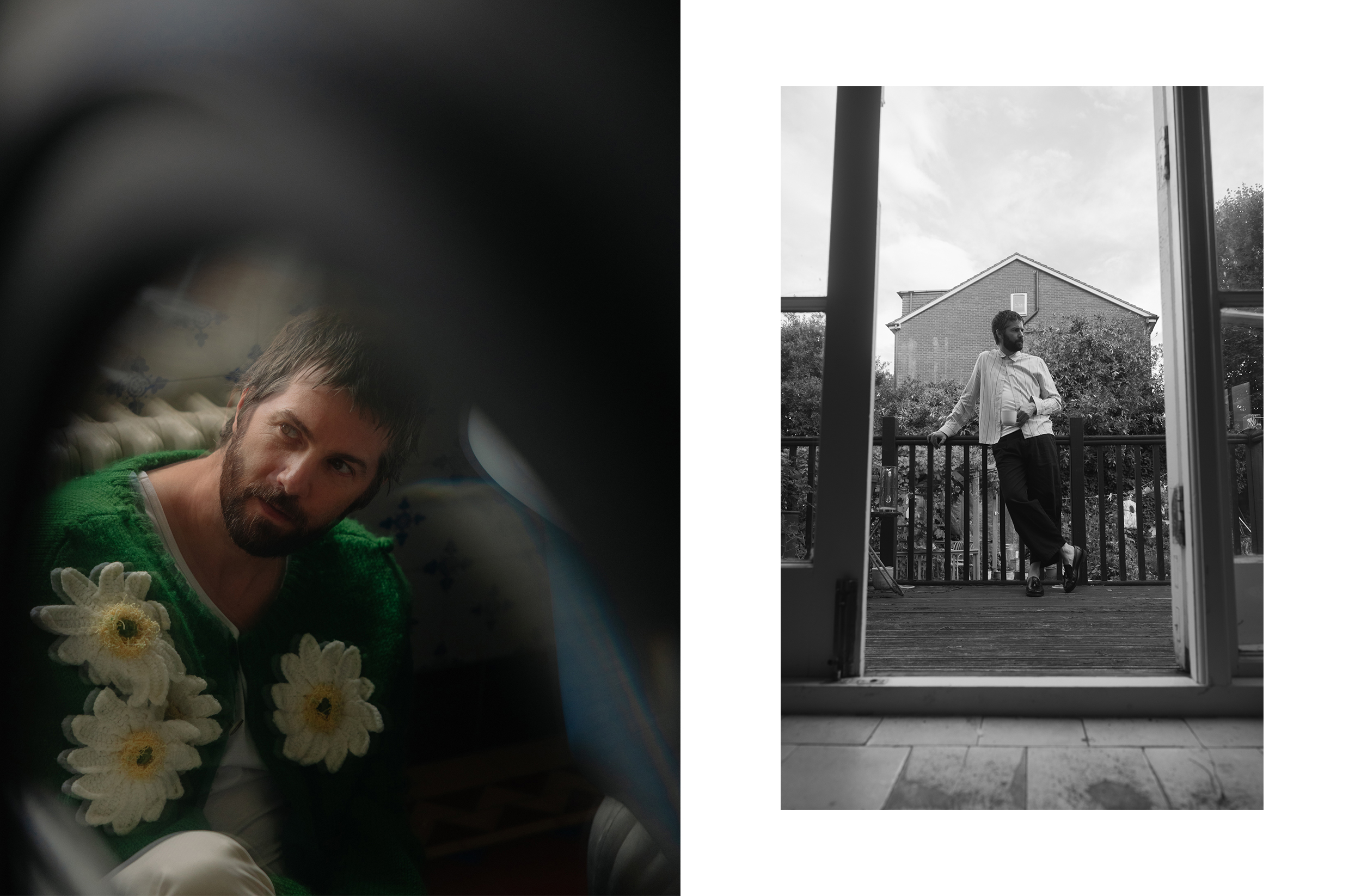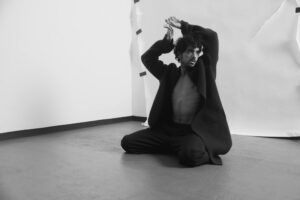“Mix Tape” is not a love story. It’s a story about reunions, truths, growth, and nostalgia. But yes, there’s a bit of love in it too – in all the directions it can take: towards others, oneself, home, freedom, silence, music. “Mix Tape” is also, of course, a story about music: the B-sides of the ’80s in Northern England, and all the memories and emotions they can evoke in those living in the present.
I talked at length with Jim Sturgess – our August Cover Story – about how music acts as memory, lesson, and a means of communication, especially when words fall short or can’t quite capture what needs to be said. In “Mix Tape”, Jim plays the adult version of Daniel, grappling with a past that resurfaces to shake up, and ultimately realign his life. The Stone Roses, Velvet Underground, Arctic Monkeys, Joy Division, The Cure, Nick Drake – they all map out a journey of loss and rediscovery, adding depth and texture to events, and shaping the characters from the inside out, until they emerge raw and real, for all of us.
Between “Across the Universe”, “Mix Tape”, “The Stolen Girl” and his music project under the name King Curious, Jim retraced some of the most significant moments and reflections of his career as an actor and musician, and of his life as a husband and father – with a soundtrack of special songs that have shaped (his) history.
What’s your first cinema memory?
Oh, good question. I think the first time I ever went to the cinema was on my older brother’s birthday. My dad took my brother and some of his friends to go, and I had to sort of tag along because I was just the younger brother, you know [laughs]. I think it was a movie called “BMX Bandits”, pure 80s cinema, about a group of kids riding around on their BMX bikes. Nicole Kidman is in the film.
The first time I went on my own will, because I wanted to see the film, I watched “Ghostbusters”.
That’s one of my favourite movies ever.
That’s one of my favourites too! I have such vivid memories of watching that film at the cinema and being completely lost in that. And I remember the first time I went to New York – you know, when you go to New York, you feel like you’re in a giant film set – I had all these images and memories and all these reference points from movies that I grew up with, and when I was on the streets of New York, I remember driving past the library that is in “Ghostbusters” and losing my fucking mind.
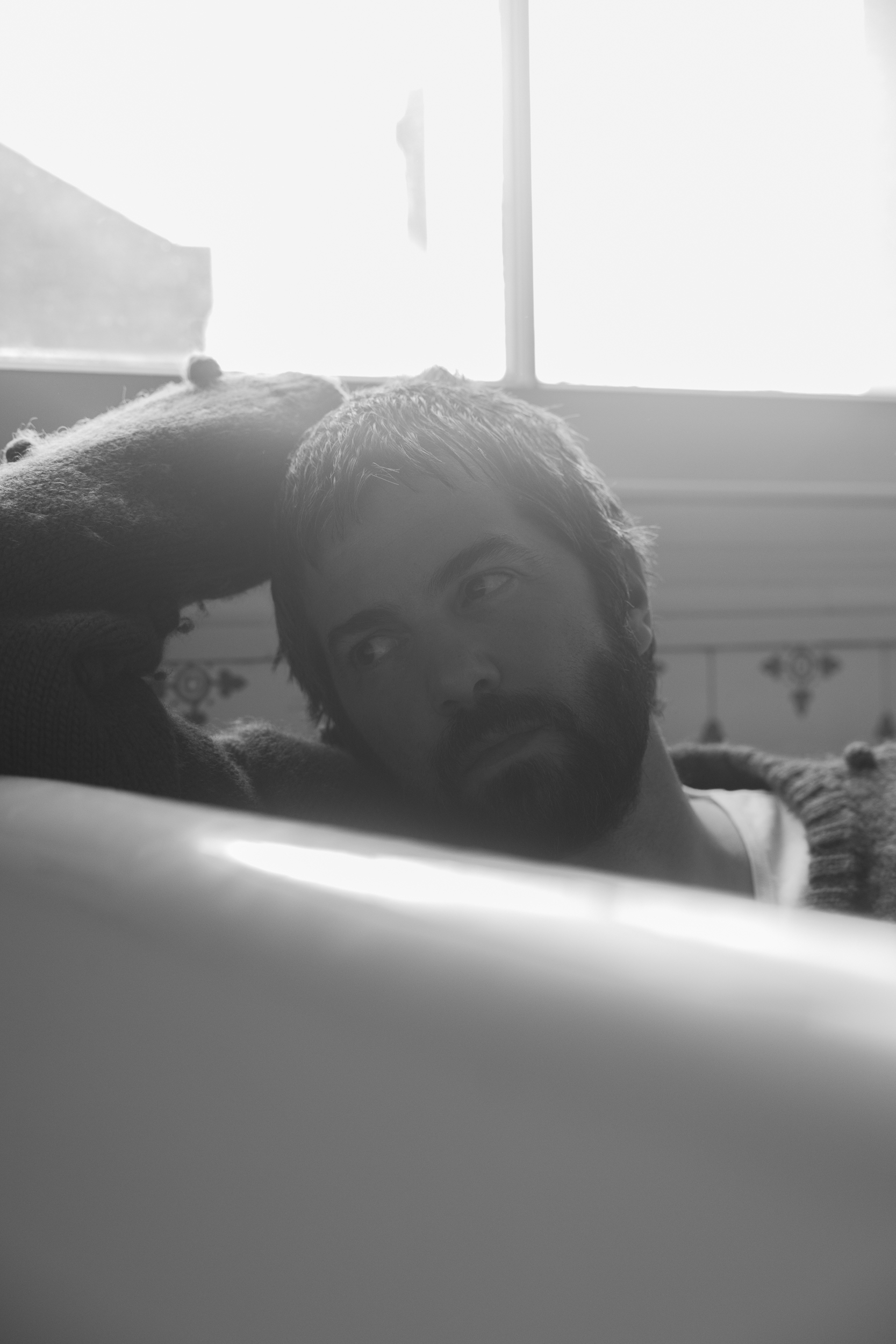
Speaking of “Mix Tape”: I loved the dual timelines of the show. I love it when I get to see the many ways past can influence the present, but I understand flashbacks and flashforwards can be tricky to follow. How did you ensure consistency and authenticity between young Daniel and your present-day Daniel?
I think the casting was key. It was important to make sure that there was a continuity between the two couples, me and Teresa [Palmer] and Rory [Walton-Smith] and Florence [Hunt]. And that was really down to being so specific with the casting. I know that they went through a huge casting process: the director sort of referenced it as “looking for unicorns” because you have to find people that not only looked and had a similar energy, but could also do a Sheffield accent, which is not an easy accent to do.
Florence is quite well known here in the UK, she’s in a show called “Bridgerton”, so when she came along, it all made some sense; but Rory had never done anything ever in his life before, this is the very first thing that he’s ever done. You know, the director, Lucy [Gaffy], who’s one of the most collaborative people that I’ve worked with – she feels like a real true friend and really sort cares about all the people that are around her – she was kind enough to bring me in on the audition process for Daniel and let me watch all the tapes. She would ask me, “Who’s speaking to you? Who feels like a younger version of your version of the character?”. So, I was really grateful that I was allowed to get involved and have an opinion. And luckily our opinions aligned. Immediately, when I saw Rory, I thought there was something so gentle about him, and at the same time, he was still the “lad”, and I could believe that he was a music lover, there was a sort of poetry to him that felt right, but he could also play football, do you know what I mean? So, with Rory, we all knew that it was worth taking a risk and getting a first time actor who’s never done it before in his life.
Yeah, I think he was brilliant. And you two were really aligned, everything was believable.
Yeah, and it was beautiful because Rory was so hungry to learn and was not afraid to ask, he wanted to come on set, he wanted to watch me work and shoot some scenes. So, I was able to talk with him – we found a really nice little common moment because I discussed with Lucy that I thought that Daniel suffered from sort of panic attacks, very private kind of panic attacks. So, we had a visual representation of that, and it was lovely that we could pass that on to Rory’s character. It’s a very small detail, but it’s something that connects the two characters visually, you know, because that’s something that they’ve been going through their whole lives.
Speaking of emotions, in “Mix Tape”, no one is loud about their feelings – they always kind of hum in the background, like a half-remembered melody. Was that a challenge to play, or a relief?
It’s always hard to show not showing stuff, you know, as an actor that’s quite a challenge. I’m British, so that’s just in our nature to hold all our emotions down and to not show it to anybody, so, I get it [laughs]. Particularly in this story, the working-class in the north of England, so industrial town, they’re very tough, very strong people.
Emotion is a time thing as well – the 80s was a different time for emotion, while these days are much more in tune and much more connected to our emotions. In the 80s, instead, where these guys from the show grew up, you had to really hold that stuff down, so, it was really important that it was all withheld, trapped emotion, unresolved pain that they were carrying around with them.
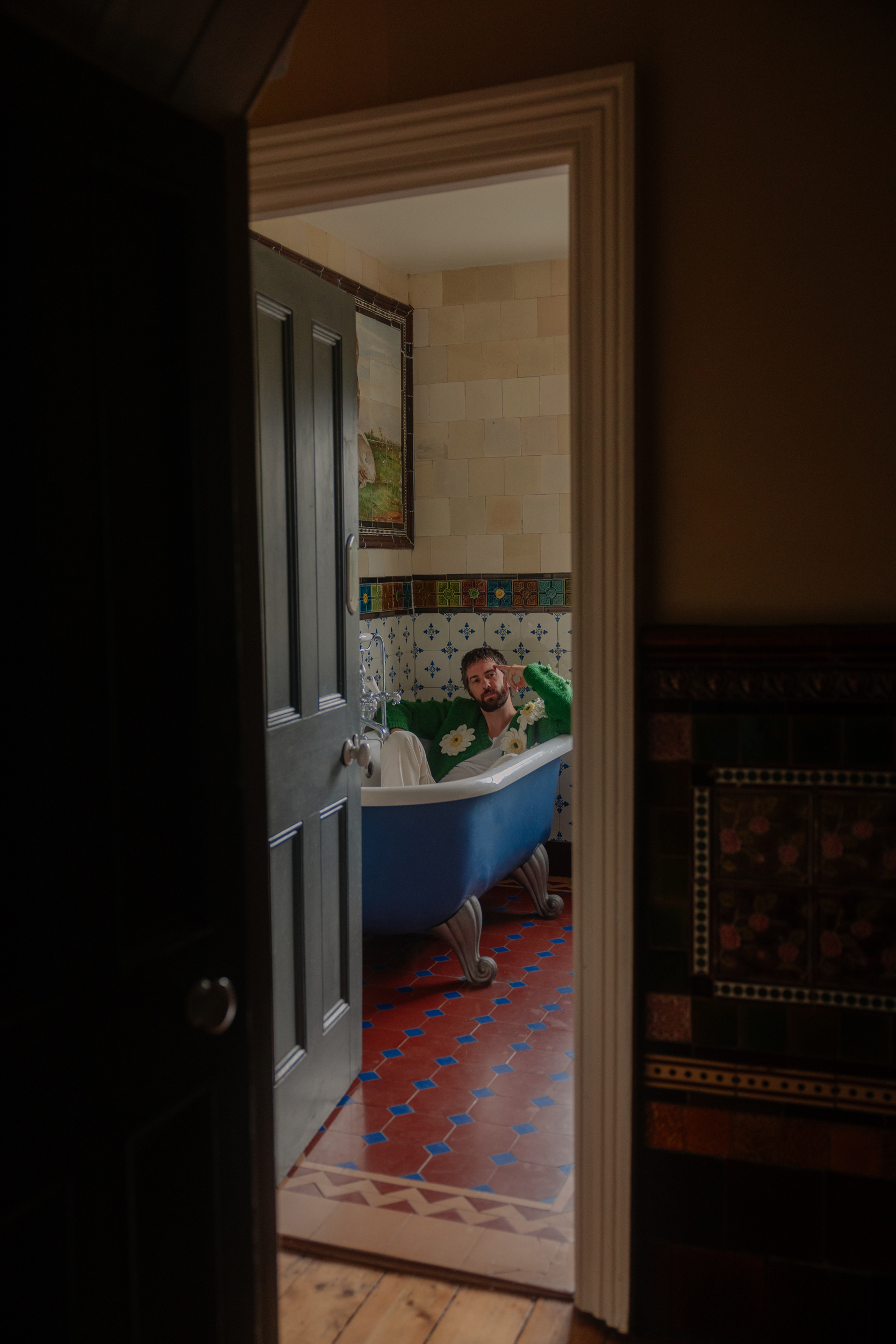
“It’s always hard to show not showing stuff”

Yeah, absolutely. Also, in this show, music definitely drives the narrative. Personally, some of my favourite tunes ever were featured – “Stephanie Says”, “Love My Way”, “Fluorescent Adolescent”, and many more.
Really? That makes me very happy.
Yeah! Really great soundtrack. Did any specific song from the show, or from the ‘80s in general, resonate with you personally while filming?
Massively. The music was such a huge part of the dialogue for all of us. You know, when I got on board, I was very nervous about the music. It hadn’t really been in place in the script, they just referenced a few things, but music’s such a huge part of my life. And particularly in this time in the 1980s in northern England, there were these very specific bands that were coming out, so in the show, the music could have gone in any direction. You know, music is very personal to people, everybody has their own journey and own experiences and references with music. So, I was nervous because I thought, “Who are these kids and what are they listening to?”.
We wanted these kids to be truly into the music scene, so they weren’t listening to the pop music of the time, they were listening to the underground bands that were emerging.
Some of the songs featured may not necessarily appear like romantic songs, like there’s the song at the end of episode on by the Jesus and Mary Chain, which is quite dirty and dark, not an obvious romantic song, and I was really pushing for stuff like that. I kept saying that these kids are going to be listening to the B sides of things: they’re not listening to the singles, they’re listening to the album tracks. It was so amazing to be with a team of people that listened to that, and we all got excited about the kind of music that they would be listening to.
So, to answer your question, there were loads of tracks because for me, growing up, I was into that music, even though I was slightly later on in life in the 90s, but I was very influenced by 80s guitar bands coming out of Manchester. The whole show opens with one of my favourite songs, which is a track called “Fools Gold” by the Stone Roses, which sets the scene perfectly.
Also, I saw the music and the soundtrack as my duty as Daniel, because Daniel was a music lover, so I thought I needed to get involved and get into the ears of the producers and the financiers. Then Lucy had some beautiful ideas, like The Velvet Underground.
The show quietly asks whether our first love ever really leaves us. Do you believe we ever stop being the people we were when we fell in love for the first time?
Great question. I think it just totally shapes you as a human being, doesn’t it? It has to. Everything is so visceral when you’re a teenager. Of course, not everybody gets that experience, but if you really do connect with someone in a really profound way and you dare to fall in love with each other at the age of 15, 16, you have your first experiences together, you fall in love with the same music, so it is just unavoidable that it’s not going to completely shape you as a person, and you often think about that person. I think that’s why the show has been received in the way that it has, because it’s just been evoking so much memory, even the mixtapes everybody’s remembering.
I’m getting sent loads of photographs of some of people’s old CDs and mixtapes and stuff they’ve found in the attic, and, of course, everyone’s remembering their first love.
If you could give teenage Daniel one piece of advice through a song lyric, what would it be? And what about your teenage self? What song lyric would you hide in his locker?
There’s a song by a band called The Charlatans, which were around at that time, and the title of the song is “I Never Want an Easy Life if Me and He Were Ever to Get There”. I think that is a pretty good one, for both Daniel and me.


When Daniel, both the teenager and the adult Daniel, listens to a track alone, he’s in his own little bubble, standing there in stillness, and nothing really matters anymore. Do you believe in this “bubble theory”, in the idea that when we do something we’re passionate about, we don’t exist in the real world anymore for a little while?
I live my life by that. If you ask my wife, she’d tell you I drive her crazy. Once my headphones are on, the world disappears because you create your own world. That is why I love music and film. And I listen to a lot of music with my headphones on – my wife will listen to some music in the kitchen while she’s chopping an onion or something, and that’s enough for her, it’s to sort of fill the room, but for me, it’s different. If I’m excited about an album, I’ll put it on, I’ll listen to it from start to finish, and I’ll put my headphones on, and I’ll disappear for 45 minutes. When I should be cooking dinner, you know what I mean? [laughs] It’s the same reason why I like making music, because you can completely disappear into another world.

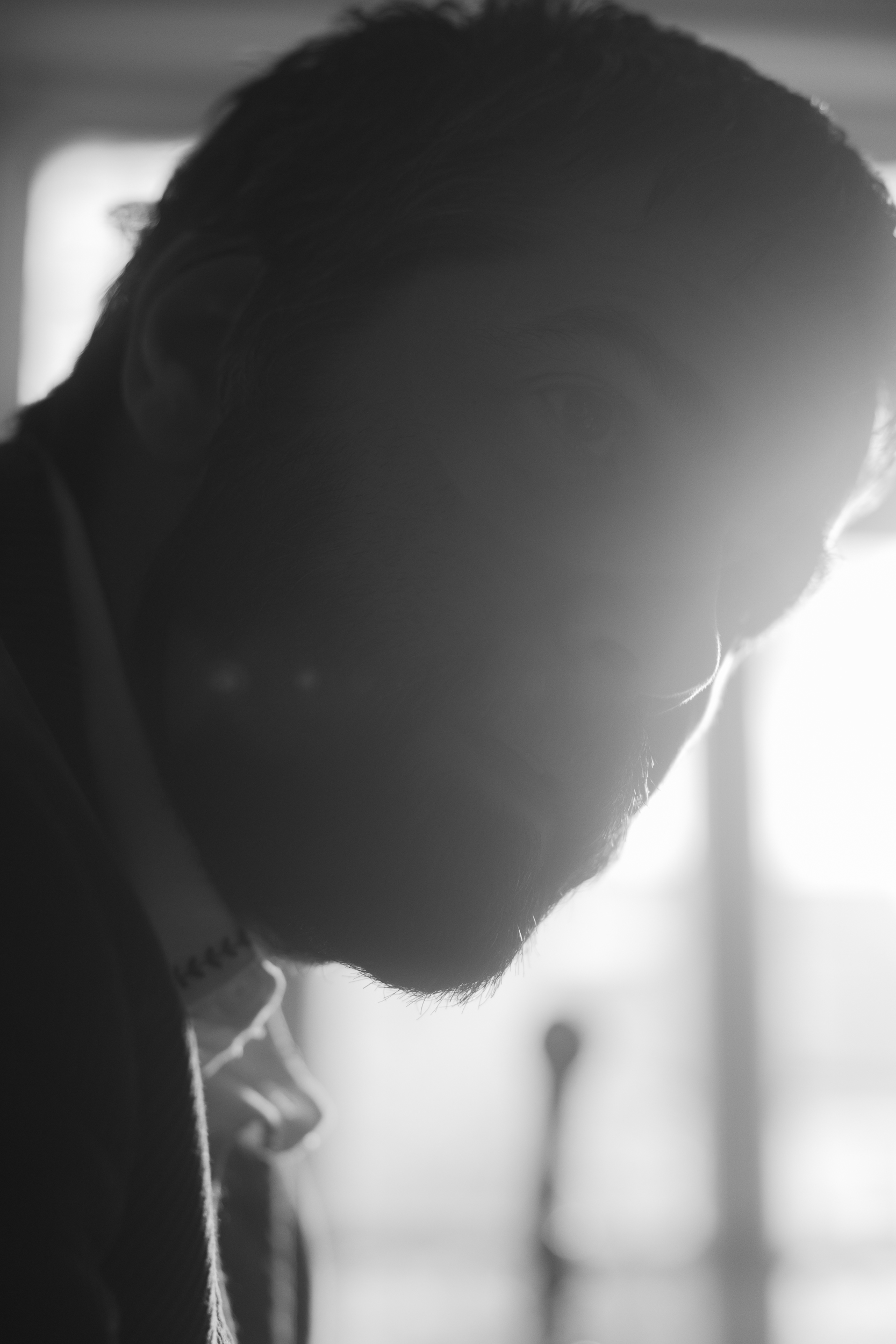
“…you can completely disappear into another world”
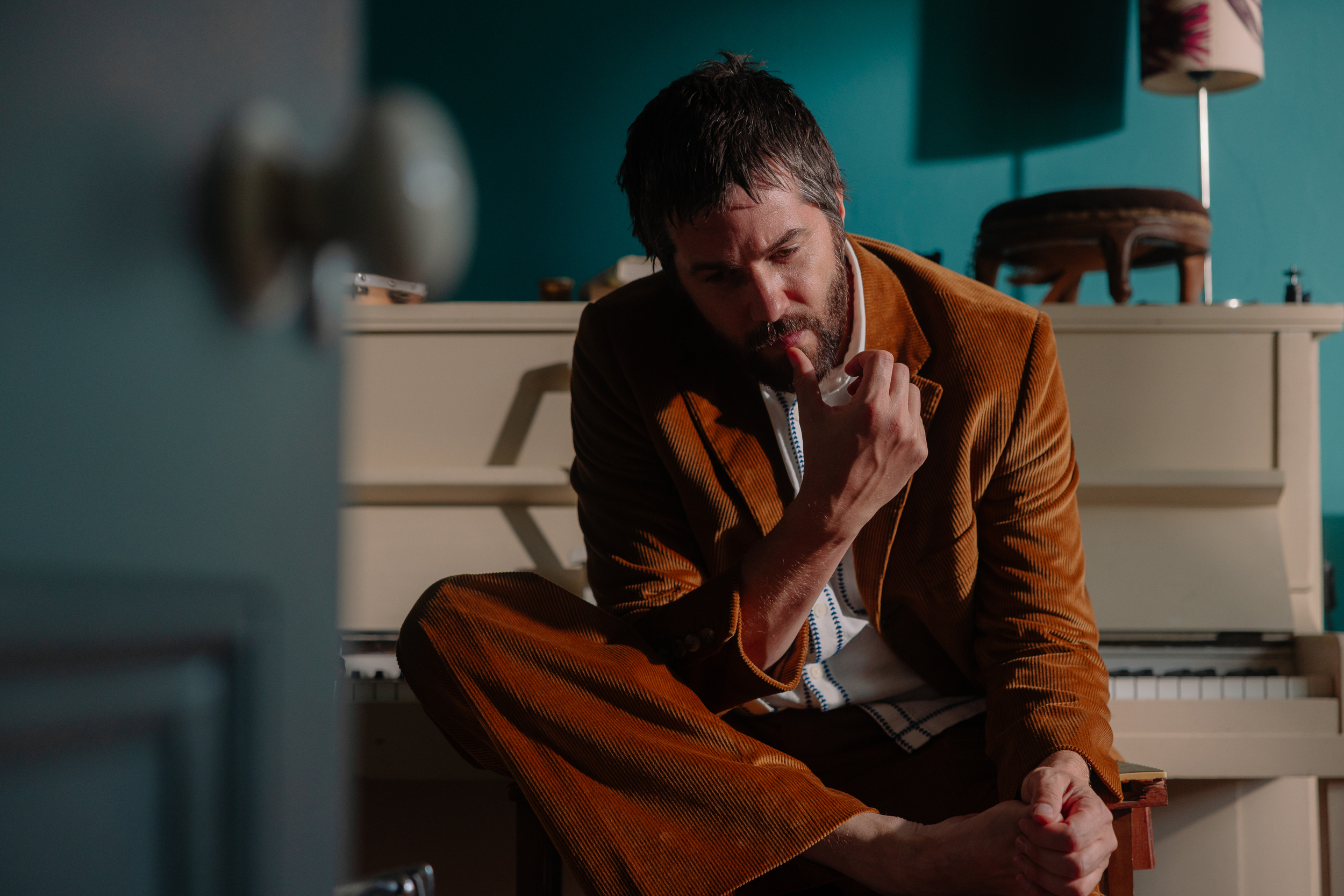
Of course. And in fact, in the show, there’s a sense that music knows us better than we know ourselves, and songs can communicate what we feel way better than our words could ever do. Sometimes, I feel that way, too. Was there ever a track in your own life that felt like it understood you before you did?
Yes, absolutely. It wouldn’t even just be one song; it was so many. You were understanding life through these songs and getting your own identity through the songs. If you ask me what my favourite band is, I’ll tell you it’s the Stone Roses, but the truth is, I haven’t listened to that band massively for many, many years, but they were my favourite band when I was 16 years old, so that is what I say when I’m asked who my favourite band are. It just meant so much to me at that moment in my life and no other music will ever mean as much as it did when you’re that age, you know.
So, I listen probably more to Nick Cave and Tom Waits and stuff like that then I do the Stone Roses these days, but I’ll always tell you my favourite band is the Stone Roses.

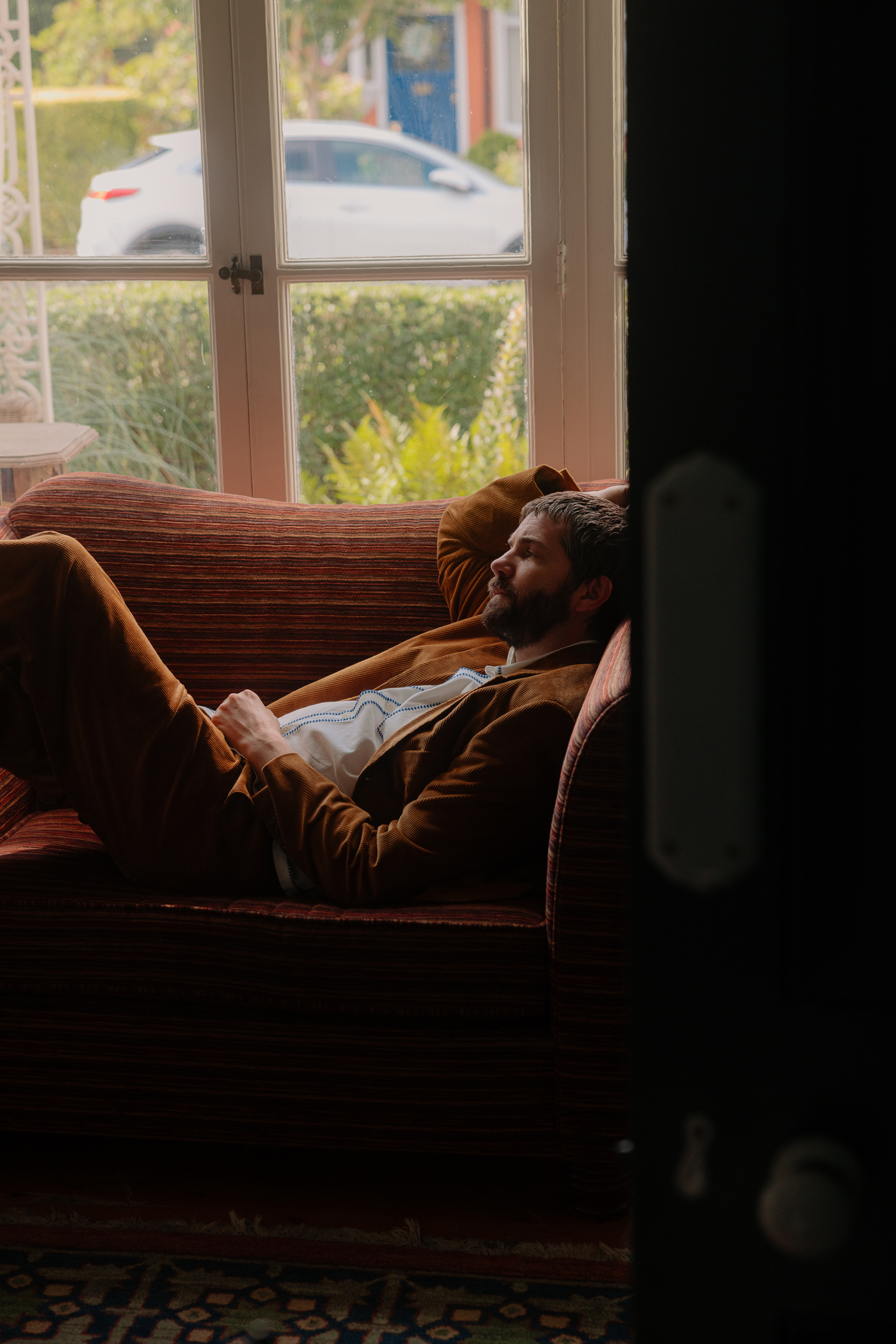
You know, I wish mixtapes were still a thing today – I think making a mixtape for someone is the purest demonstration of love and care, it’s a moment of “creation” where you’re thinking about someone and what they make you feel like and that’s your only thought, keeping your mind busy. It’s special. If you had to make a mixtape today, which track would you absolutely include?
God, these are good questions.
There’s a song called “Cole Corner” by Richard Hawley, who I think is one of the most beautiful songwriters in the world – he smokes a lot of cigarettes, clearly drinks heavily and is very sort of northern English in his attitude, but then he sits behind a guitar and will write the most beautiful song you’ve ever heard in your entire life. Anyway, I put that song on a mixtape to my wife when we first met, and it became our song. You know, my wife walked up the aisle to it in our wedding. And I made a playlist, for the birth of my son, which was on shuffle during it all, and the moment he came out, that song came on. It’s a gift of a song.


That’s incredible.
Going back to Daniel, he uses music to reconnect, but also to hide. What do you use with the same purpose?
It would be acting probably, and music, but acting, in particular. By pretending to be other people, by losing yourself in other people’s skins and other people’s lives, you learn so much about other things, but you also learn a huge amount about yourself too. So, I definitely hide in some of these characters, but I’m also sort of reconnecting to myself by playing and getting the opportunity to live different lives. Or not necessarily live different lives but investigate different lives through the medium of acting. I’ve learned so much about the world, so much about myself, so much about how I walk through the world, and it’s because I’ve played all these characters and I’ve experienced little pepperings of different lives, and it’s definitely helped me become who I am.
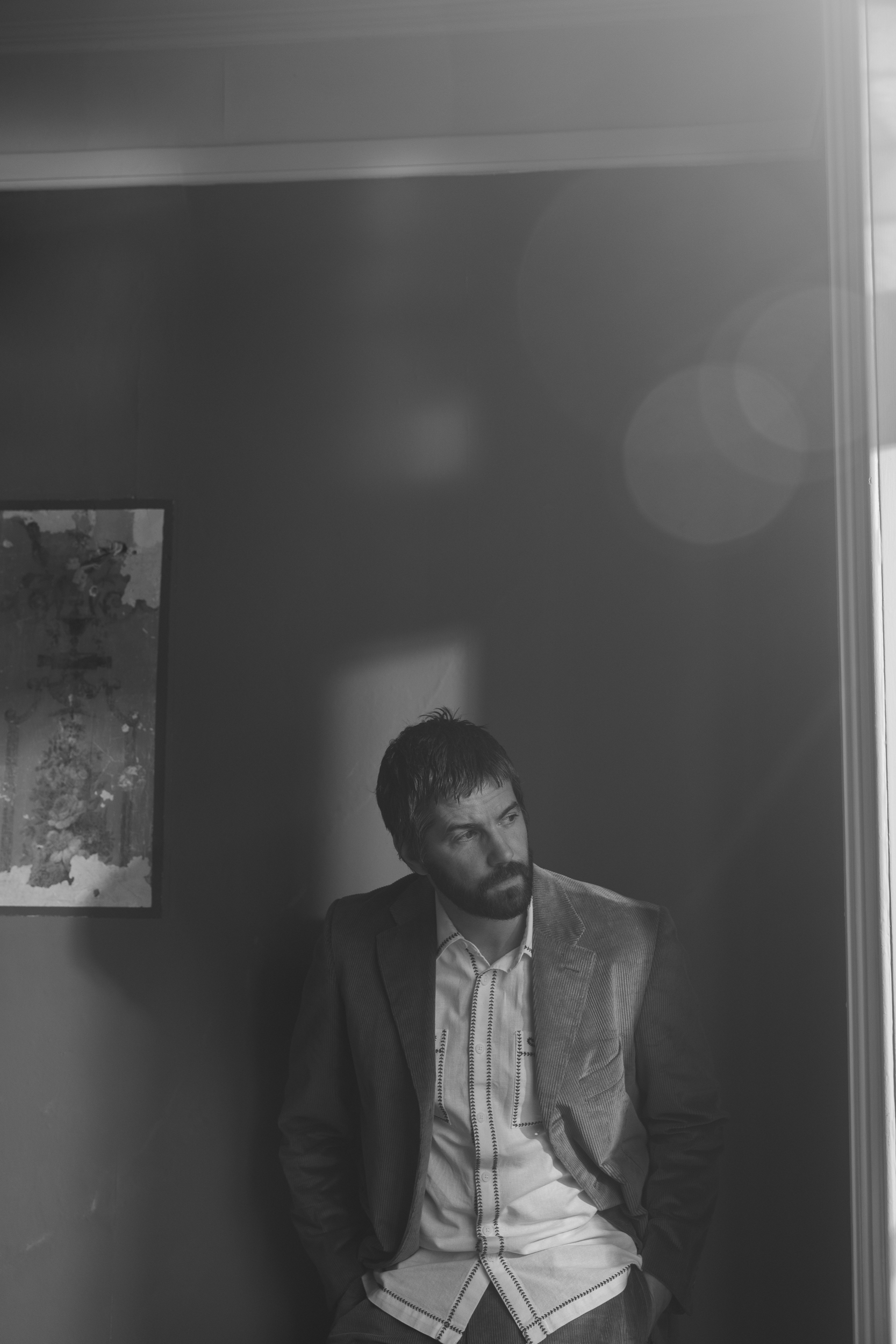
“I’ve learned so much about the world, so much about myself, so much about how I walk through the world, and it’s because I’ve played all these characters and I’ve experienced little pepperings of different lives”

Now, changing subject, I’d like to talk about your other show “The Stolen Girl”. As a parent yourself, how did you respond emotionally to this script? And how did you approach building your character, especially portraying the complexities of a father and husband whose actions evoke kind of conflicting feelings in the audience watching it?
It was one of those scripts that came along. When you’re looking for a project to get involved with, and you’re reading scripts, you’re just trying to find a reaction in yourself, whether you find that script hilariously funny or heartbreakingly moving or thrilling or whatever. That one literally made me feel sick to my stomach. I read it and it was a very unpleasant feeling that I was having. I was a new dad, you know, and I think it is literally the worst possible thing that you could ever imagine happening to yourself or to anybody to lose your child. So, yeah, I definitely had a reaction for sure, and I had to follow that and be intrigued by that.
One of the really interesting things about that project is that when you’re making something so horrendous like that and you have to live with those characters and that situation and be present on set, of course, you have to absorb and feel what that might be like. There was a particular scene where we have the press conference, and I remember nearly fainting. My blood drained from my head because it was so real – they put our film cameras right at the back of the room and we played it out, we were introduced, and we came up onto the stage and we sat there and there was pictures of this girl who disappeared and we were connected to the material. I thought, “This is exactly what it would feel like if this was truly happening to you”. It was really traumatic to put yourself in that moment.
Anyway, with this job, one of the interesting things that happens when you’re making traumatic scenarios is that you end up having a really joyful time on set. You end up holding on to the people around you for dear life and there’s a sort of playfulness out of survival that comes with doing a job like that.

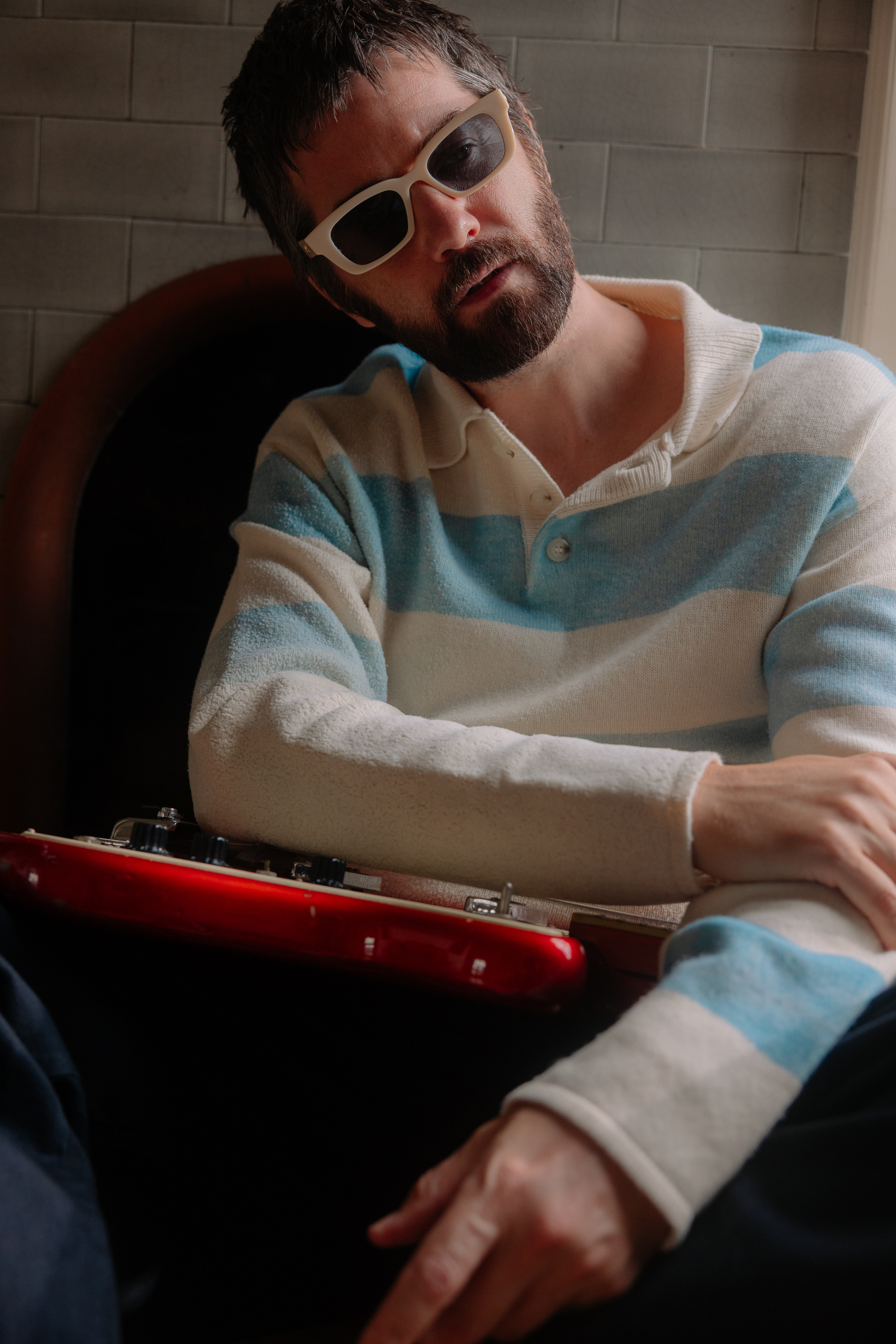
You’re also a musician. What made you decide when it was the right moment to step forward with your own project?
I think Covid might have played a part in it for sure. We all had time on our hands to reflect about our own lives and what matters and what didn’t matter. And various music projects that I’ve been involved in had fallen apart, and I just knew that I had to do something on my own and put my head down in a cathartic exercise for certain things that were happening in my life. Also, I was finally emotionally in quite a good place, and because I got through a lot of stuff, I was able to reflect properly.
And I remember when I was going through quite a difficult personal time, people would say to me, “You can use this”. But I just couldn’t. When you’re in something, you can’t see the wood for the trees, you know, and it’s like that until you feel more settled and better in where you’re at, in your head, and all the things have passed through your body a little bit. So, I was kind of in that place, where I felt like I could actually write about some of this stuff that I’ve been going through or stuff that I’ve been thinking about. So, it started to happen.
Another weird thing that happened was I moved home. My piano had been stuck in a back room somewhere, in my old place, it was covered in boxes and old clothes and junk. When I moved to a new house with my now wife, and it was a fresh new chapter in my life, the piano took more of a centre stage in the home, and I would have to walk past it quite often. It would just sit there; I’d look at it occasionally and carry on with my day. And then some one day I sat down and thought, “I’ll just have a fiddle around and just sit, you know, just play some piano”. It happened so quickly, but I wrote a song called “The Makeshift Numbers”, which is on the record, a sort of piano ballad. I’ve heard other musicians talk about this thing, where a song kind of writes itself, and you really don’t hold much responsibility for it because it just comes through you, you’re there and it starts to happen.
The words, the melody and the chords all seem to have been waiting to be played, you know, and that really, truly happened, the song was written organically and in that moment. It was the first time I sat down to try and write a song, and so I was like, “Okay, well, I’ve written a song. Shit.” [laughs] and, “What happens if I try and write another song?” and then, suddenly, my head was sinking in those terms. And suddenly, my creative antennas were up, and I was looking and receiving all this stuff, so that the album got made through that.
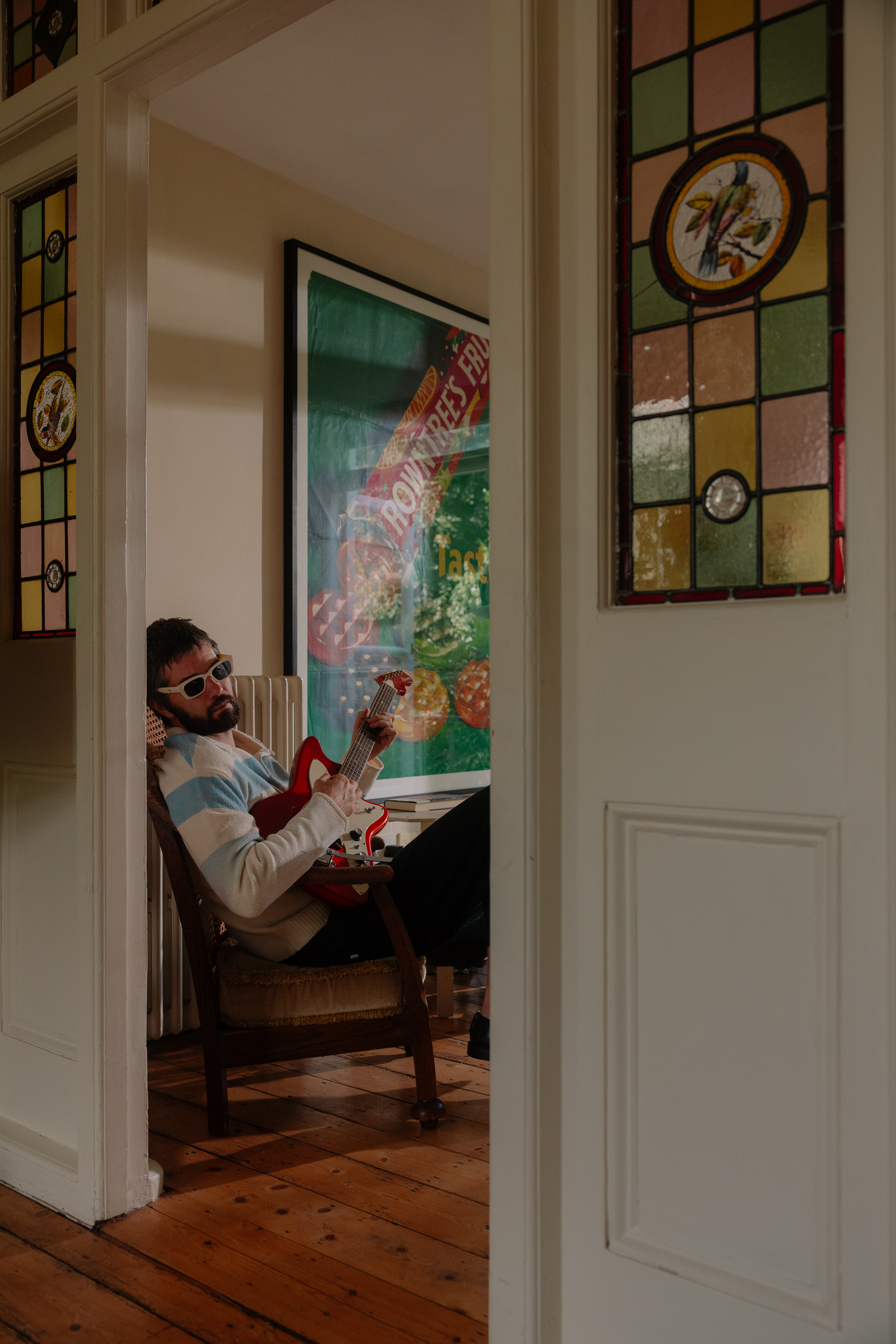
How do you distinguish between Jim the musician and Jim the actor creatively?
I’ve had to think about this quite a lot because when I was putting the record out, I would be asked this question about music and acting. They are the same thing for me, and they’re completely different for me all at the same time. I know that’s a really rubbish answer, but I think they’re all releases of emotion and expression, they’re all something I can just live inside of. It’s all part of storytelling and trying to make sense of the world. So, there’s a continuity and something unified about it. But they’re also so different, like to go to work as an actor, and to sit with your headphones on and write songs are very different things. You’ve got a completely blank canvas when you’re creating music, whereas when you’re an actor, the words and the story have been created already, and you come in and you try to live inside of it and bring it to life.
What is a TV show or a film that you’ve watched recently, and that has stayed with you for a while?
A film I’ve watched that I really loved, which I recently just watched again, is a film called “The Worst Person in the World”. Kind of like “Mix Tape”, it’s a story about nuanced adult relationships and navigating your way through life. It’s so romantic and painful and messy, and so poetic. What a beautiful, poetic film.
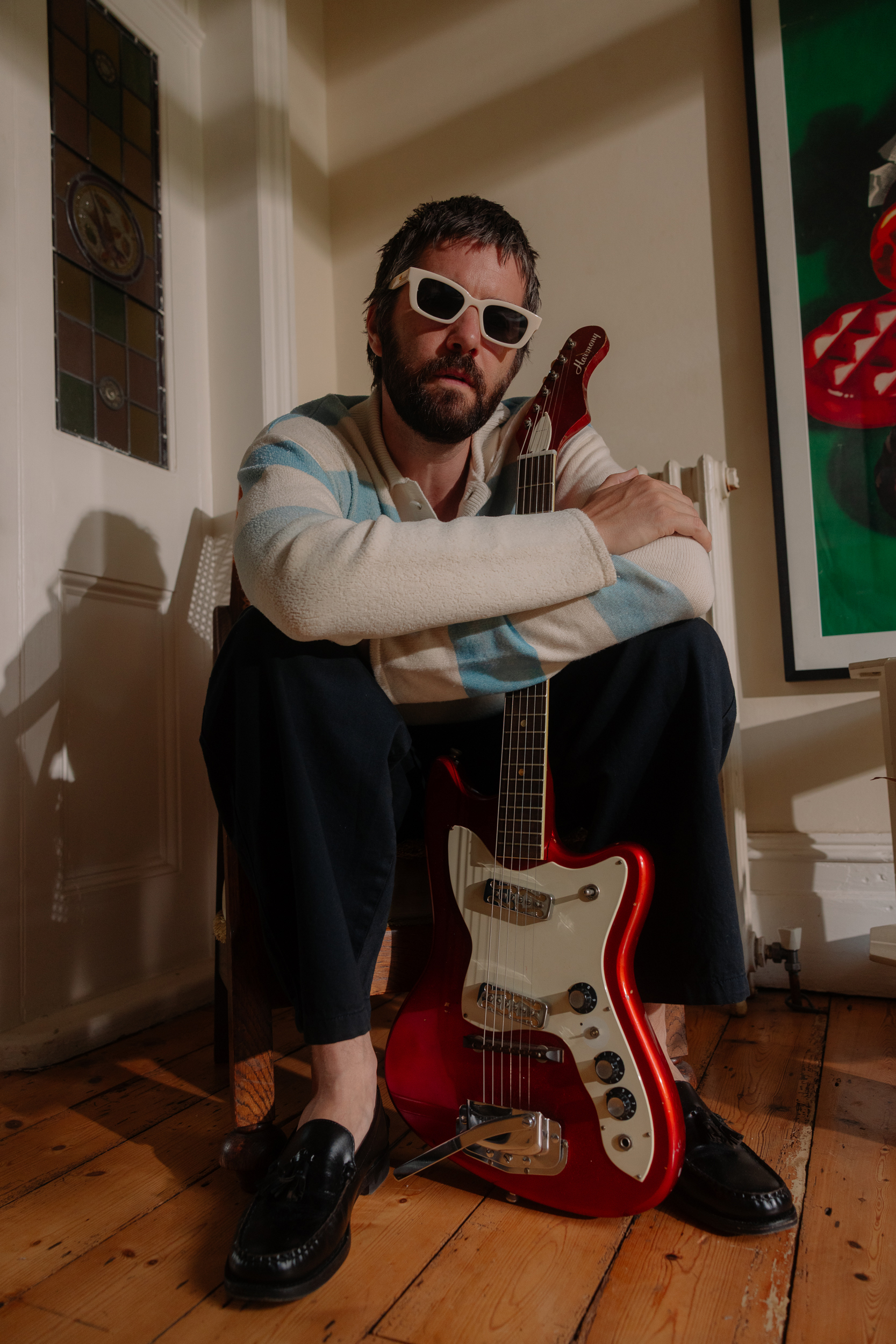

Yeah, I loved it too; it’s one of the best films I’ve watched in the past few years.
Any funny anecdote or something that happened on a set that you’d like to share?
There’s been so many!
There was a time in “Across the Universe” where me and Evan Rachel Wood were filming the scene with Bono, who was singing “I’m the Walrus”, and in the scene, we’re all supposed to be tripping and having hallucinations. So, me and Evan Rachel Wood decided it’d be a good a good idea to take mushrooms that day. You know, none of us really had any lines in that scene, we’d really just had to look around ourselves, party a bit… So, we took a lot of mushrooms [laughs]. It was great and hilarious and funny and all the things that it should have been to a point. And then we had to do the scene where me and Evan Rachel Wood had to roll around on an inflatable bed, and Julie Taymor, the director, wanted us to be loose and relaxed, just lying there and be madly in love and roll around on this bed. But I convinced myself that the bed was made of glass, so I felt as if I just couldn’t be relaxed because I was going to break the glass at any moment. So, Julie was shouting from the side, “Just roll around, relax!” and I was like, “I can’t!”, and I think that was the moment where she found out that we were high [laughs].
So, she didn’t know!
Yeah, we didn’t tell her! But she found out pretty quickly [laughs].
Well, it all turned out great anyway. And what’s your must-have on set?
It’s a kind of weird answer, but it’s probably a banana [laughs].
Now it’s become a running joke, of course. I always want a banana, I don’t know why, I think it is that it just keeps you going, and it’s somewhat healthy, it’s better than reaching for a chocolate bar.
I did a job fairly recently where I’d always find banana skins in my costume pockets and jackets, and on the last day, the whole wardrobe and costume department bought banana costumes and spent the whole day dressed as bananas because I’d become the “banana boy” [laughs].

You were saying before about how acting also helps you know yourself better. I think acting, in fact, as well as making music, is actually a way to understand human nature better, and of course your own self, as you said, from an artist’s perspective. What’s the latest thing that you learned about yourself thanks to your job?
Weirdly, I think, as I’ve reached a certain age, I’m starting to enjoy it more.
When I first started acting, it was a way for me to escape my life and to do things that were more thrilling and more exciting than what my life could offer. I was interested in playing all these different characters and change the way you look, the way you speak, the way you move, and pushing for transformation, basically just trying to transform yourself as much as possible. I think now, as I get older, I’m much more interested in bringing my life into the characters. You know, at this point you’ve experienced quite a lot in life and gone through quite a lot of emotional stuff and the roller coaster that is everybody’s life. And now I feel like I can bring a lot of that stuff into the characters, something specific that I’ve learned. What matters is always to be empathetic to people, and to know that everybody comes from a different perspective and really honour that. The best way to understand people is to empathise and to see their point of view and to bring that into my own life is something that I’ve definitely learned through acting because you have to. You have to empathise with whoever you’re playing, even if you’re playing a really nasty piece of work. Even if the behaviour appears to be appalling, you have to dig deep and get a perspective.

“The best way to understand people is to empathise and to see their point of view and to bring that into my own life is something that I’ve definitely learned through acting because you have to.”
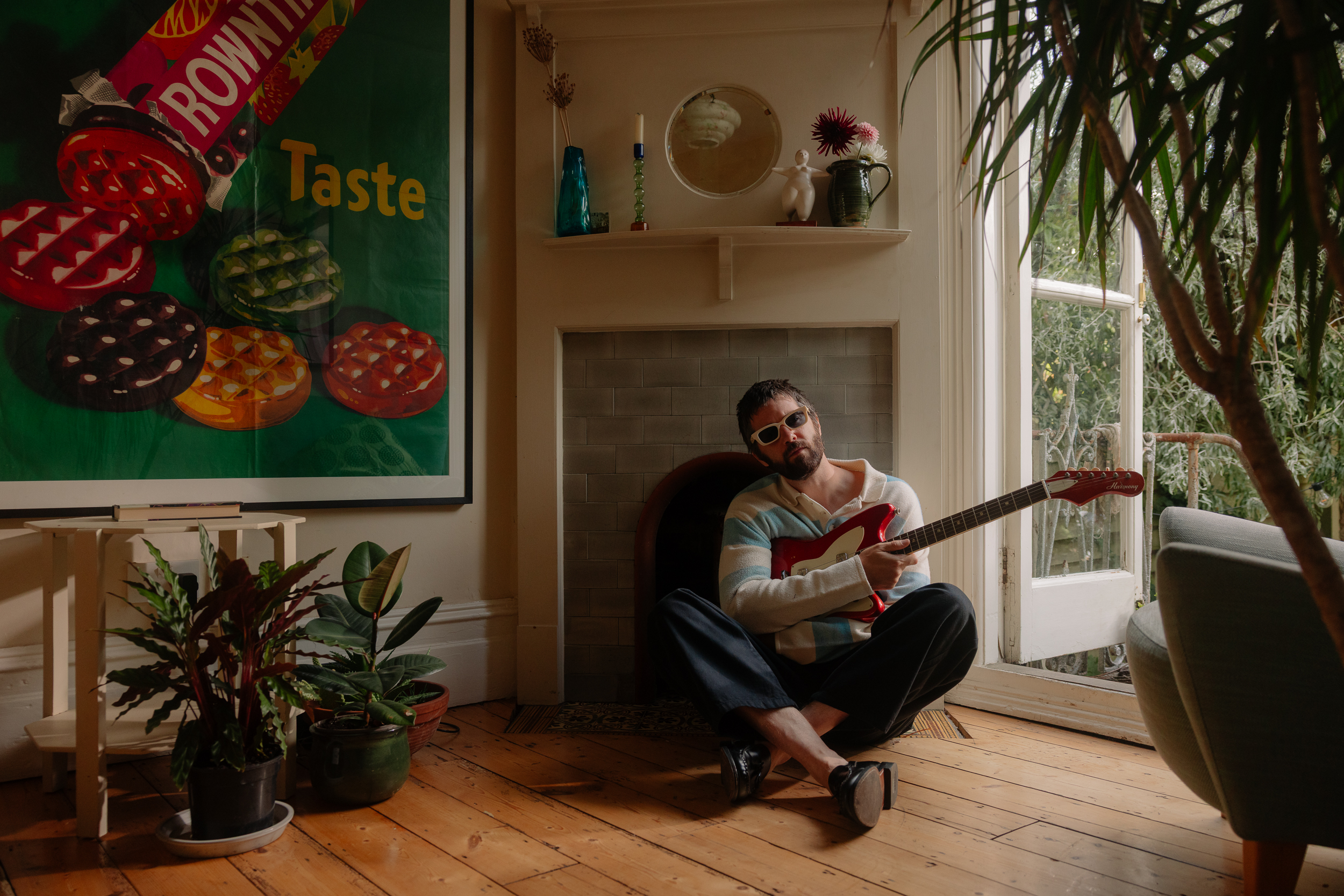
And what are you reading right now?
I just read a really great book called “One Day, Everyone Will Always Have Been Against This” by Omar El Akkad. It’s an essay from this journalist who talks about empathy and compassion, as referred to the Palestinian situation. Everything is told so poetically and articulately, and I was very moved by it. You know, he’s not taking any sort of political position or religious side, he’s just discussing what it means to understand that this is happening in the world and how do you respond to that stuff.
And then I’ve been reading a book about Nina Cherry. Do you know who Nina Cherry is?
I don’t!
She’s a musical artist who was very famous in the 90s. You know, I read a lot of biographies, I love reading books about other people, and Nina was a singer, a very cool, mixed race, gorgeous, vibrant, intelligent, electric, artistic woman. I didn’t know very much about her life before reading this. I actually bought the book for my wife and then I picked it up on holiday because she wasn’t reading it, and so I started reading it. I love her music, she made 80s “dancey”, “poppy” songs, but she led an extraordinary life. Her dad was an African jazz musician who’d moved to New York and then moved to Sweden and met her mum, who a poetic painter and sculptor, and they travelled the world together. Then her dad became addicted to heroin. I mean, I had no idea that she’d had any of this incredible backstory. It’s an amazing book, I’d recommend it to anybody.
My favourite book is “Just Kids” by Patti Smith, anyways. I think that’s one of the most romantic books I’ve ever read.
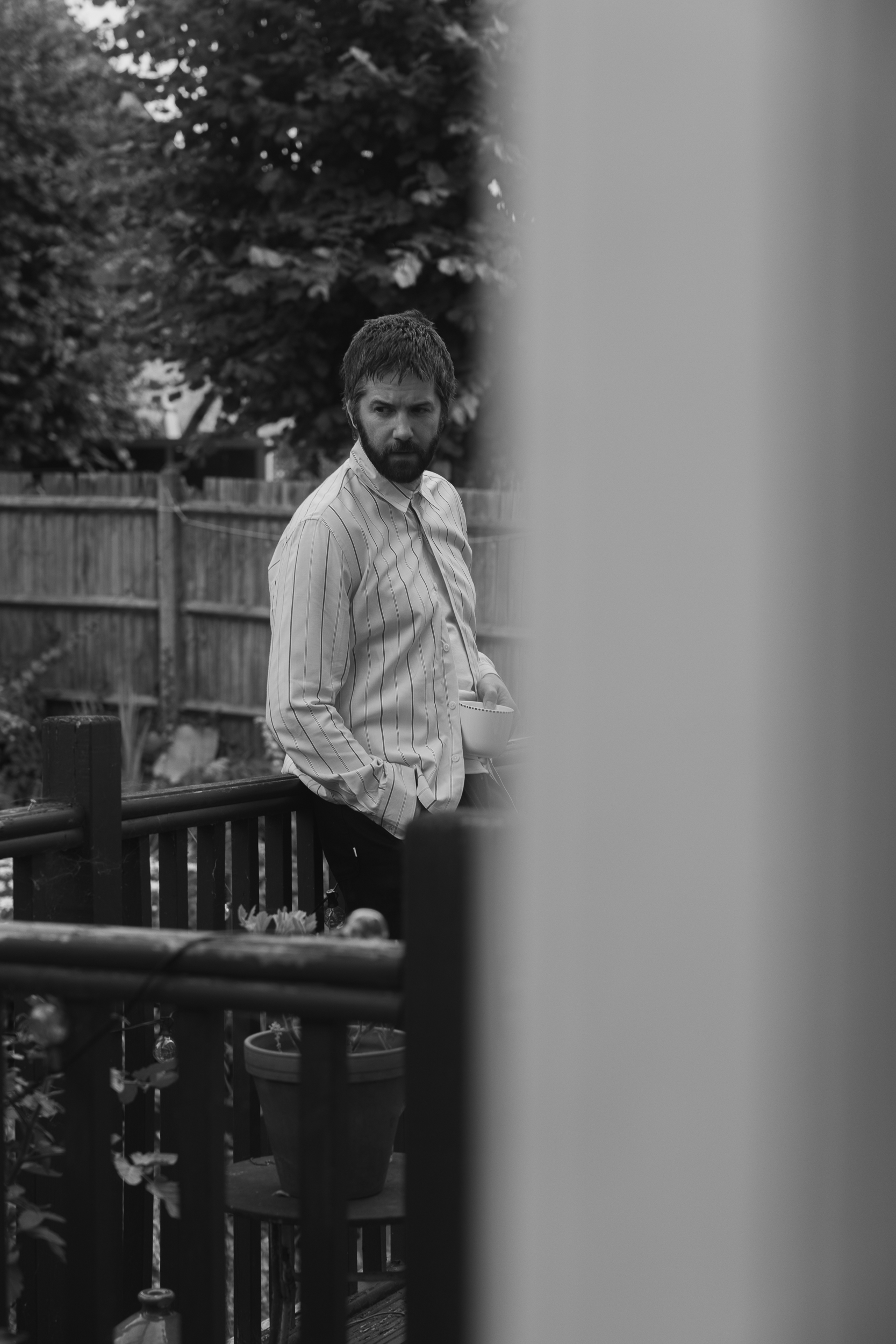

Speaking of romanticism, what is it that you’d like to see outside the window, right now and always and forever?
The ocean. I’m definitely an ocean person. Why I live in the heart of East London, I don’t know. You can’t get me out of water, I just love it, it soothes me, it’s medicinal, I feel better about everything once I’ve dived in the ocean. If I see it, I have to get in it, even if it’s freezing cold. My wife’s always rolling her eyes when I tell her to pull over the car because I just want to go and have a swim in the ocean. And someone told me – and I really live by that – that you never regret coming out of the ocean, no matter how cold it was, no matter how difficult it was getting in, you always come out and go. You know, I suffer from anxiety, so, when I get in the water and swim (and sometimes the colder, the better), everything falls into place, everything feels better.
What was your greatest act of rebellion?
Getting into acting was some form of a rebellion in a weird way. When I decided it made sense, and I was going to pursue it, that was a big moment.
Rebellion was following anything that made me feel excited to be alive. Weirdly, I’ve never been ambitious. Ambition somehow implies that you know where you’re going, or you want something, and that you’re not going to stop until you get it, but I’ve never been like that. I had no belief that I would become an actor or make music, but I had a lot of dreams that I might do it. And so, my rebellion is to just do what I like doing, and if it doesn’t feel good, then I just don’t do it.
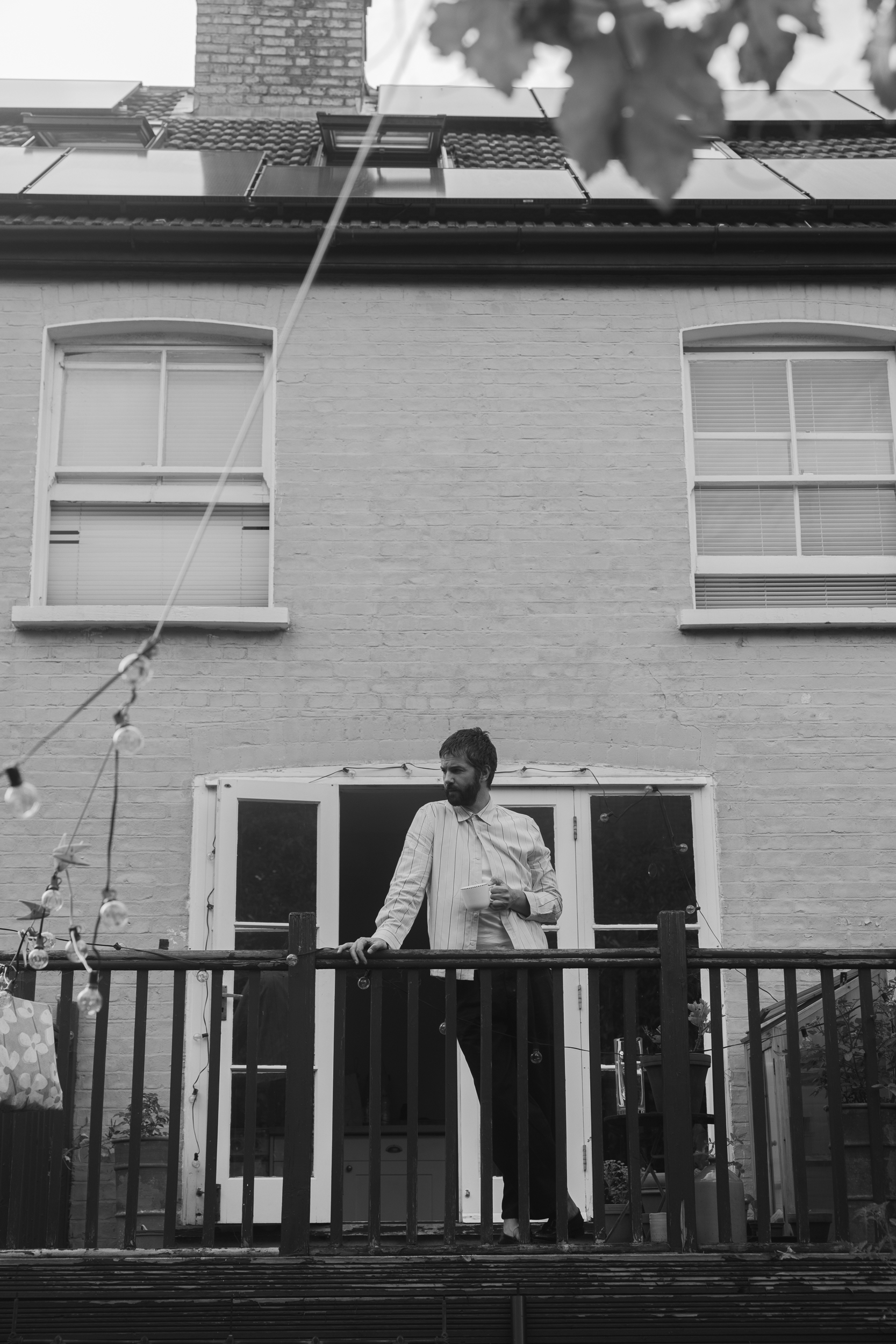
“I had no belief that I would become an actor or make music, but I had a lot of dreams that I might do it.”
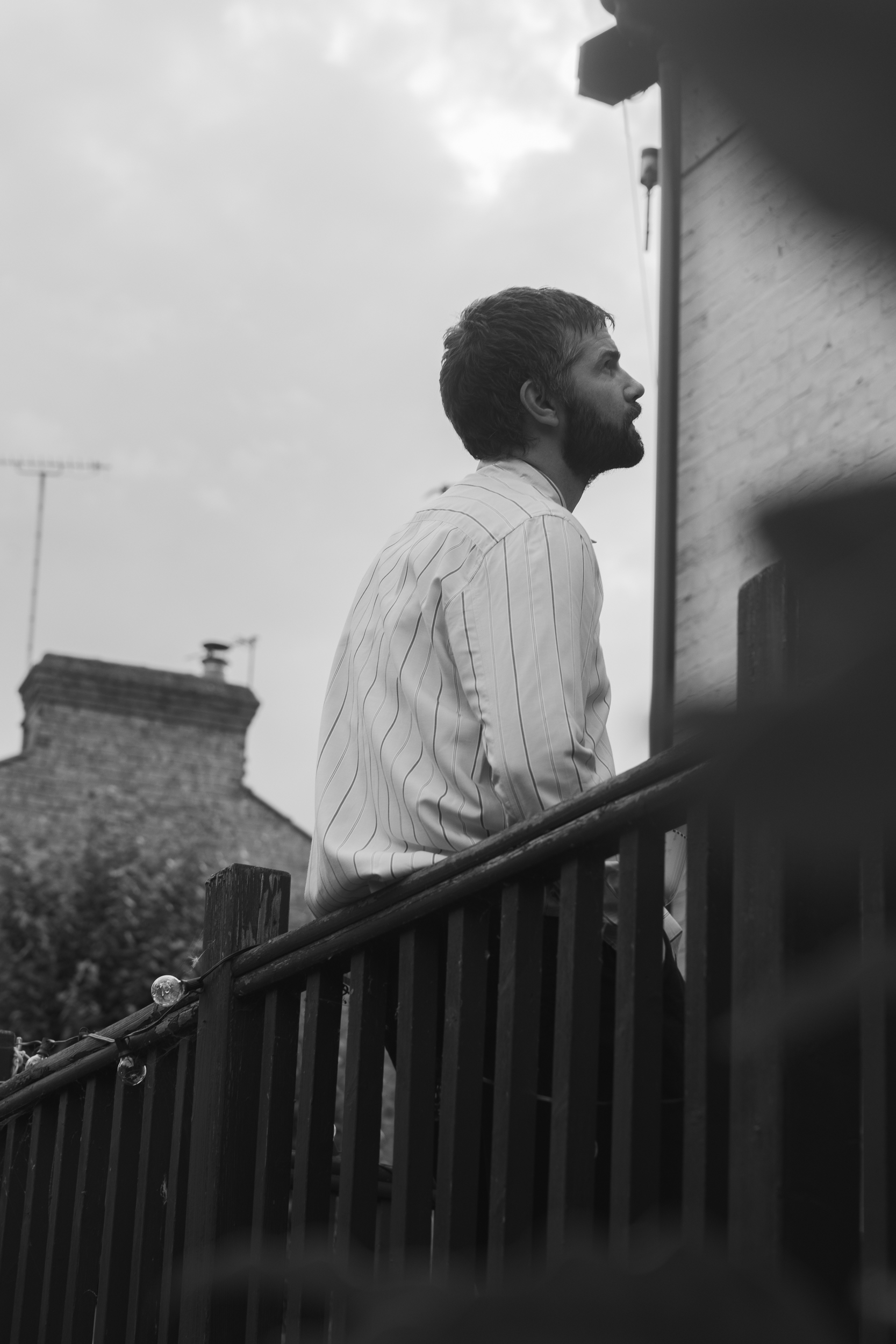
And what is your biggest fear?
Regret, I think. Someone said to me, once, that fear is temporary, regret lasts forever. That’s a good thing to remember because sometimes you might be scared of something, but if you don’t do it, you’re going to regret it.
What does it mean to you to feel comfortable in your skin?
I guess it’s just to feel content, grounded. It’s taken me a long time to feel like that. I do now, but it’s taken me a good 45 years to get there. In the last two years, I’ve felt comfortable more than I have done. It’s a very personal thing, isn’t it? A very personal connection to yourself that some people find quite quickly in life, but some people don’t. I definitely didn’t. But when you finally have a family and all your priorities shift, you’re not the most important person in your life. In fact, you’re probably the fourth or fifth or even sixth or seventh most important person in your life, and there’s a sort of peace that comes with that. You shed all the madness and nonsense that you’ve been chasing for however many years, and you start to let it all go and feel very relaxed and more content. Happiness is not something that you should chase.
It’s more about groundedness because you’re never going to just be happy all the time.
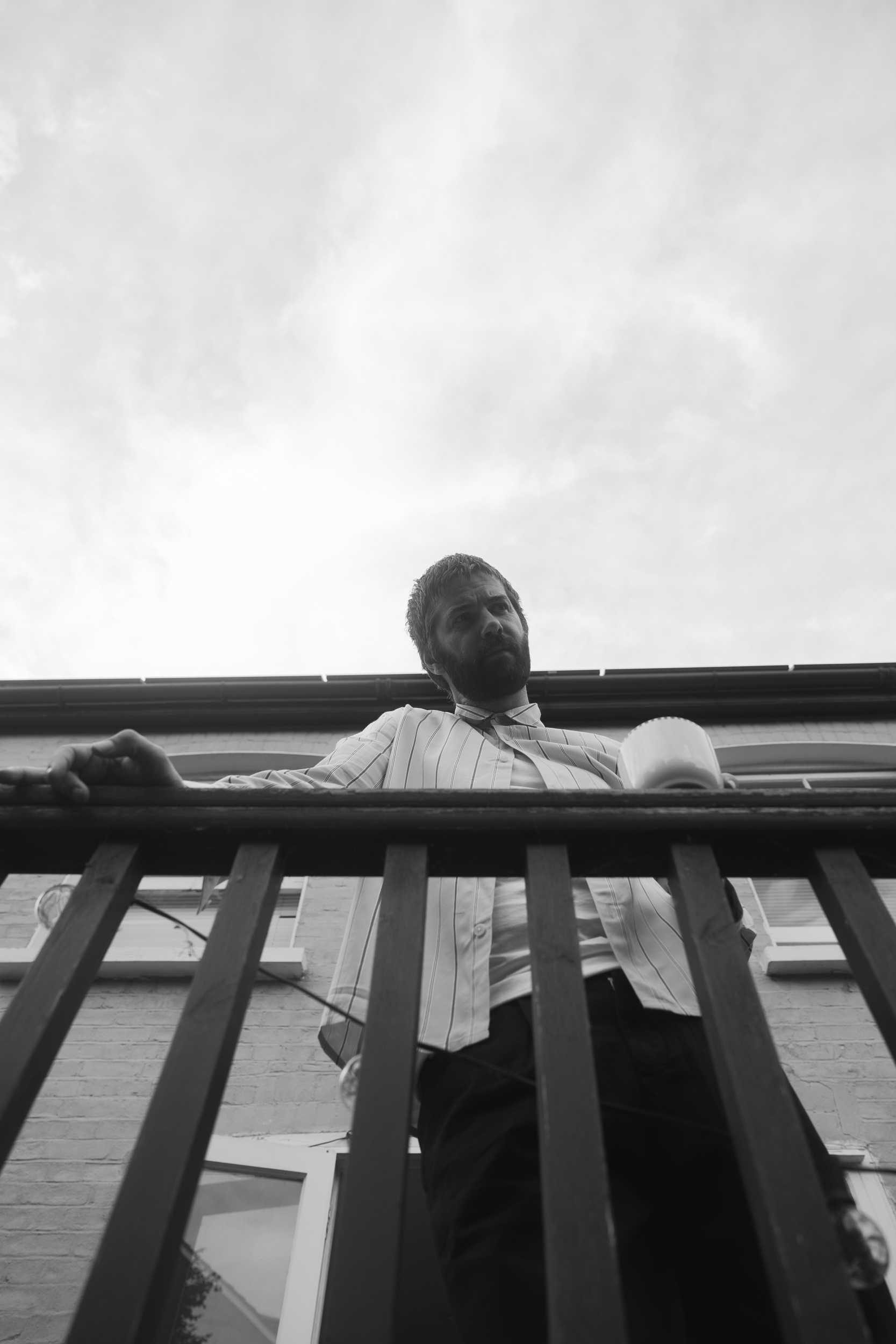
One last question for you. What is your happy place?
Probably watching TV with my family, with a takeaway. It’s as simple as that. Especially with my boys now, even if I’m watching a cartoon, I love just being there all together and sort of sharing that moment. I can’t wait till they get older, and I can start playing the movies that I love. But for now, I’m happy to watch “Peppa Pig” (probably with my headphones on) [laughs].
Fair enough [laughs].
Actually, I also feel really happy when I’m in a community of people, which is why I’m addicted to making films and TV shows, and it’s what I love about acting, which I don’t necessarily get from making music. I feel so happy when I’m in with a collection of people and we’re all trying to make the same thing. There’s a camaraderie, togetherness and a shared experience that I’ve been chasing my whole life.
I did a play when I was really young, at school, and I loved like the process of rehearsing and building this thing and getting all closer and closer. I loved that from school, you move to the theatre, and you see the lights, and the set, you try on the costumes and everybody’s pushing for the same thing. Now, I get that from making films, where you all meet together, you’re all strangers and you all fall in love with each other very quickly. All the crew, the cast and everybody that’s involved, they’re all trying to make one thing together, and that feels like a really exciting and happy place to put yourself in.

Photos & Video by Johnny Carrano.
Styling by Gareth Scourfield.
Grooming by Nohelia Reyes.
Thanks to CLD Communications.
LOOK 1
Green knit cardigan with daisy flowers by 8ON8
White vest by WAX London
Cream denim jeans by Prada
LOOK 2
Corduroy suit by Connolly
Shirt by WAX London
LOOK 3
Stripe knitted rugby shirt by 8ON8
Black wide cotton trousers by WAX London
Black tassel loafers by Sebago
Sunglasses Jim’s own.
LOOK 4
Blue stripe shirt. White vest. Black trousers all by WAX London.
Black tassel loafers by Sebago

